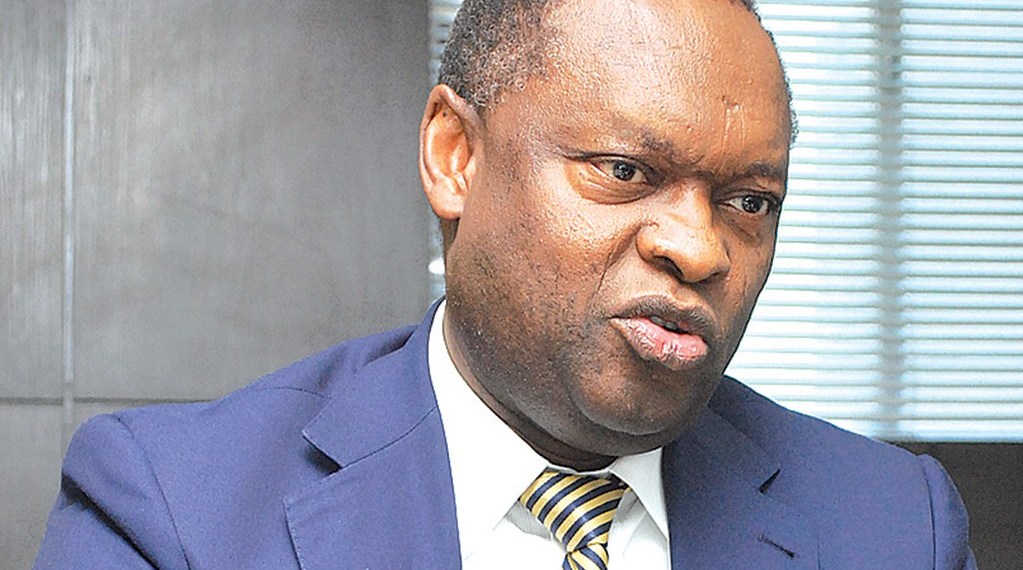
A former Chairman of the Nigerian Economic Summit Group (NESG), Kyari Bukar, says the inefficiencies and clumsy bureaucracies of the Nigeria Customs Service and related agencies like the Nigerian Ports Authority (NPA) are making Nigeria lose trade volumes to ports in Cotonou, in neighbouring Benin Republic.
Bukar said large volumes of international shipments now come into Nigeria through ports in the francophone West African nation because the traders and importers find the ports efficient and free of bottlenecks.
Bukar, the Managing Partner at Trans-Saharan Investment Corporation, revealed this when he featured on Inside Sources with Laolu Akande, a socio-political programme on Channels Television on Friday.
He said the Customs should focus on being a facilitator of trade and economic development rather than on revenue generation, adding that Customs bureaucracy at the ports and the bottlenecks are part of the vicious circle of corruption.
The Chairman of SUNU Assurance Plc also said the Federal Government must fix the energy sector if it is serious about economic development.
He said fixing the energy sector will boost Nigeria’s growth rate in the next few years. “Electricity should be available because that becomes one of the significant catalysts for economic development,” he said.
“Infrastructure such as rails, bridges, roads, and ports must be in good shape.
“One of the inefficiencies of our ports has given rise to the efficiencies of neighbouring ports. I was in Cotonou a few months ago and you can see visible improvement in infrastructure in that city. It is a port city and when you look at their ports’ capacity and what they have been importing.
“A friend of mine told me about his trip to Brazil and how he visited a meat exporting company and asked them: ‘Do you export to Nigeria?’ They looked at their list and said, ‘No’.
“He was baffled and asked them if they export to Africa and they said ‘Yes, West Africa is our largest export within the export zone, Republic of Benin’. My friend laughed and said based on the volume you have stated, if every citizen of that country (Benin Republic) eats half a cow a day, they won’t consume everything, which means that it is being trans-shipped to Nigeria.”
Bukar said the inept state of Nigerian ports might make one of Africa’s big economies lose out on the profit that comes with the operationalisation of the African Continental Free Trade Area (AfCFTA) by the African Union which targets a single continental market for goods and services in Africa.
He said, “So, they (importers) are using their ports because it is more efficient and with AfCFTA, we might even be looking at a losing battle. So, we have to put our acts together. What we say must be followed by what we do.
“If we say we are open for business, and then you come to the ports and then you are being harassed by six or seven agencies, would you want to do business in that country? It’s going to be difficult when you have another option when you just make a phone call, send your waybill, somebody goes there, clear it, no hassles, everything seamlessly, no demurrage fees.
“The demurrage fees in Nigeria alone compare to what we charge for the duties and all of that is a significant portion, that means that we have an inefficient handling of the ports. By that, it means that you are dragging economic growth because the velocity of money is very important; goods should come in and be disbursed, and goods should go out very quickly.
“I have seen some clients that have complained to the Presidential Committee on Tax Reforms that their export items ended up rotten at our ports. And this a country where we get more imports than exports. This basically means some of the containers (used for imported items) are leaving empty when they come. So, why shouldn’t we take advantage of that and move out things as quickly as possible?” he queried.
The former NESG chairman said there should be sanctions for those who are responsible for the inefficacies at Nigerian ports. “If you want to fix the country, you have to punish any form of malfeasance. When you punish it and show it publicly, human behaviour begins to shape,” he said.